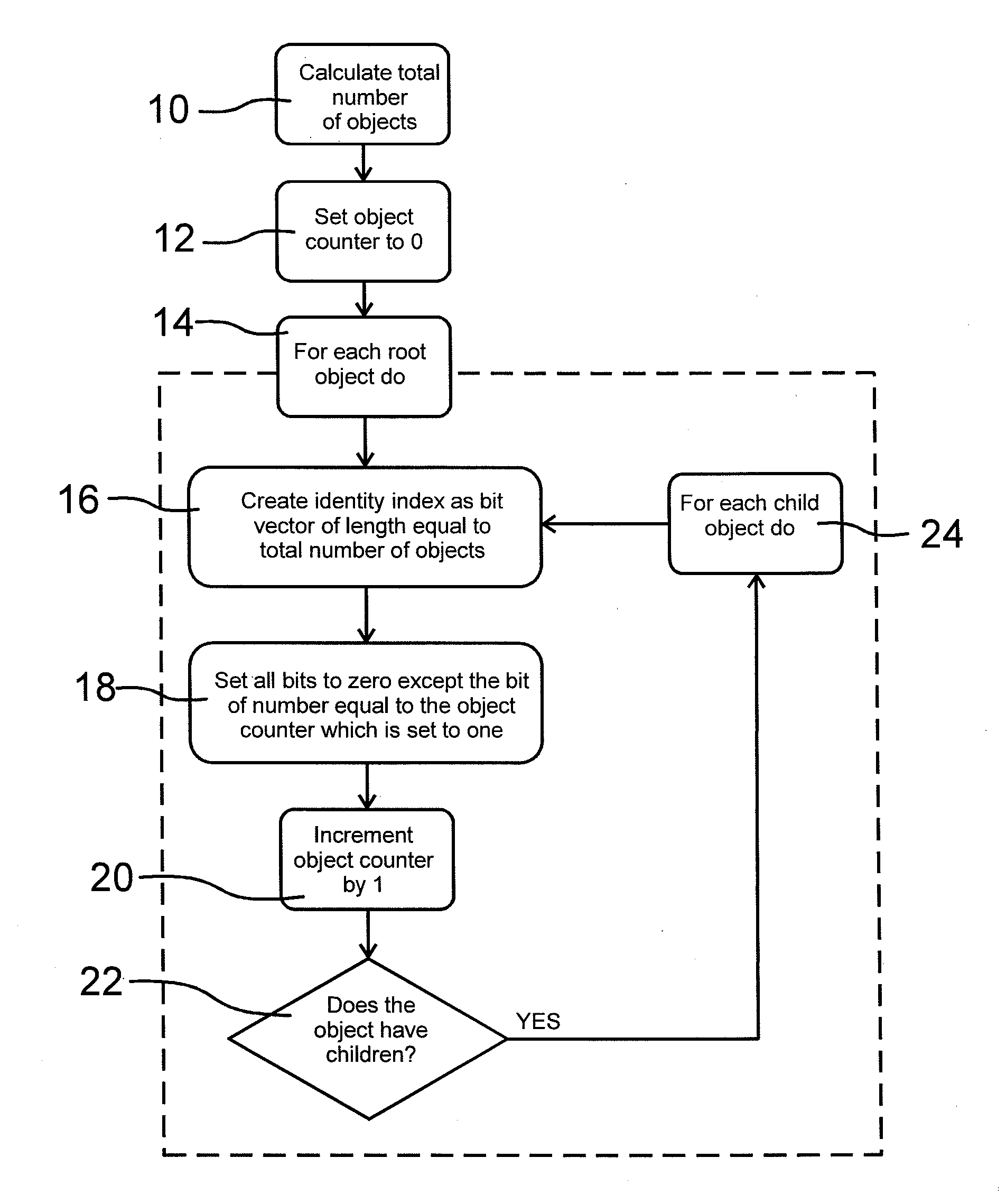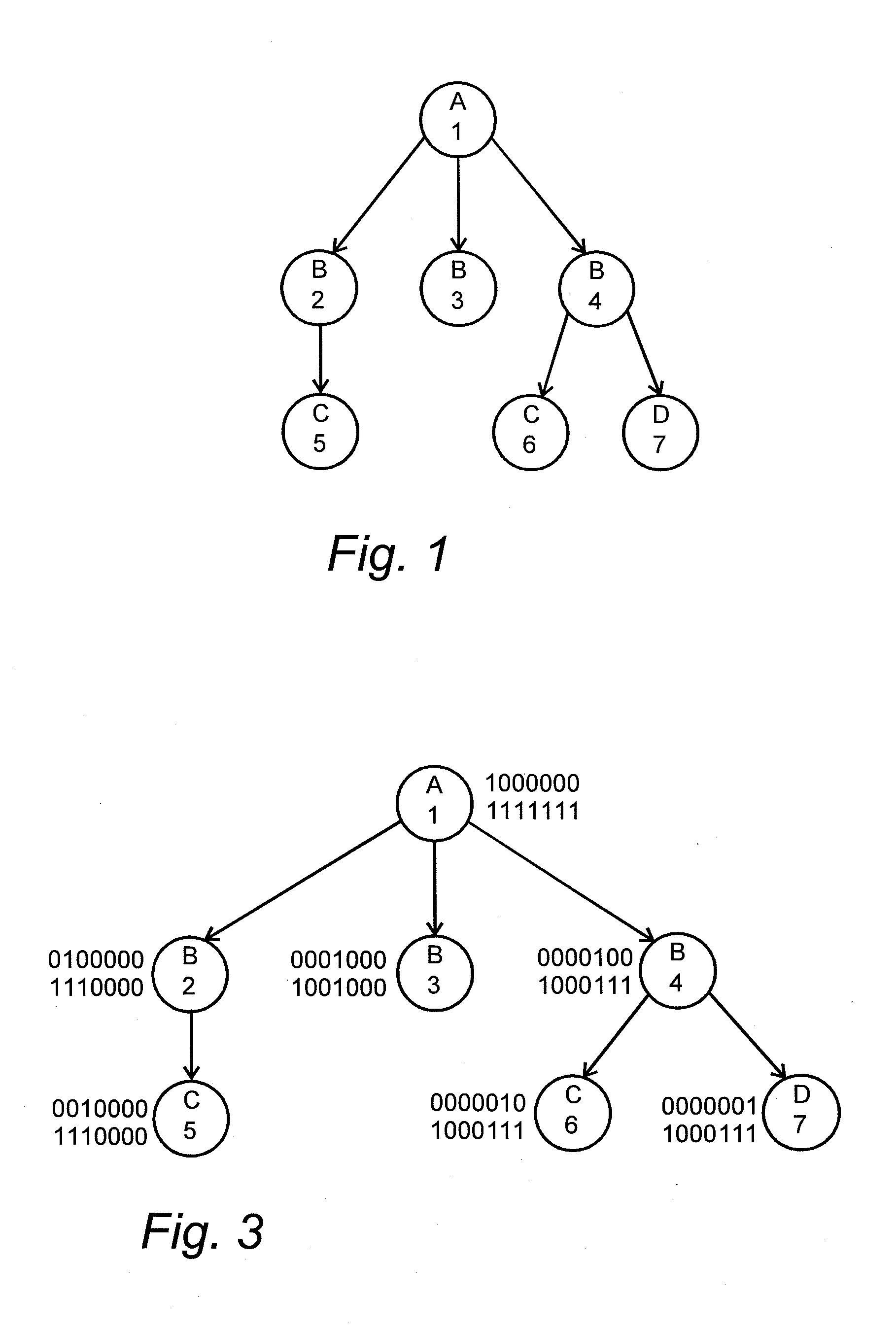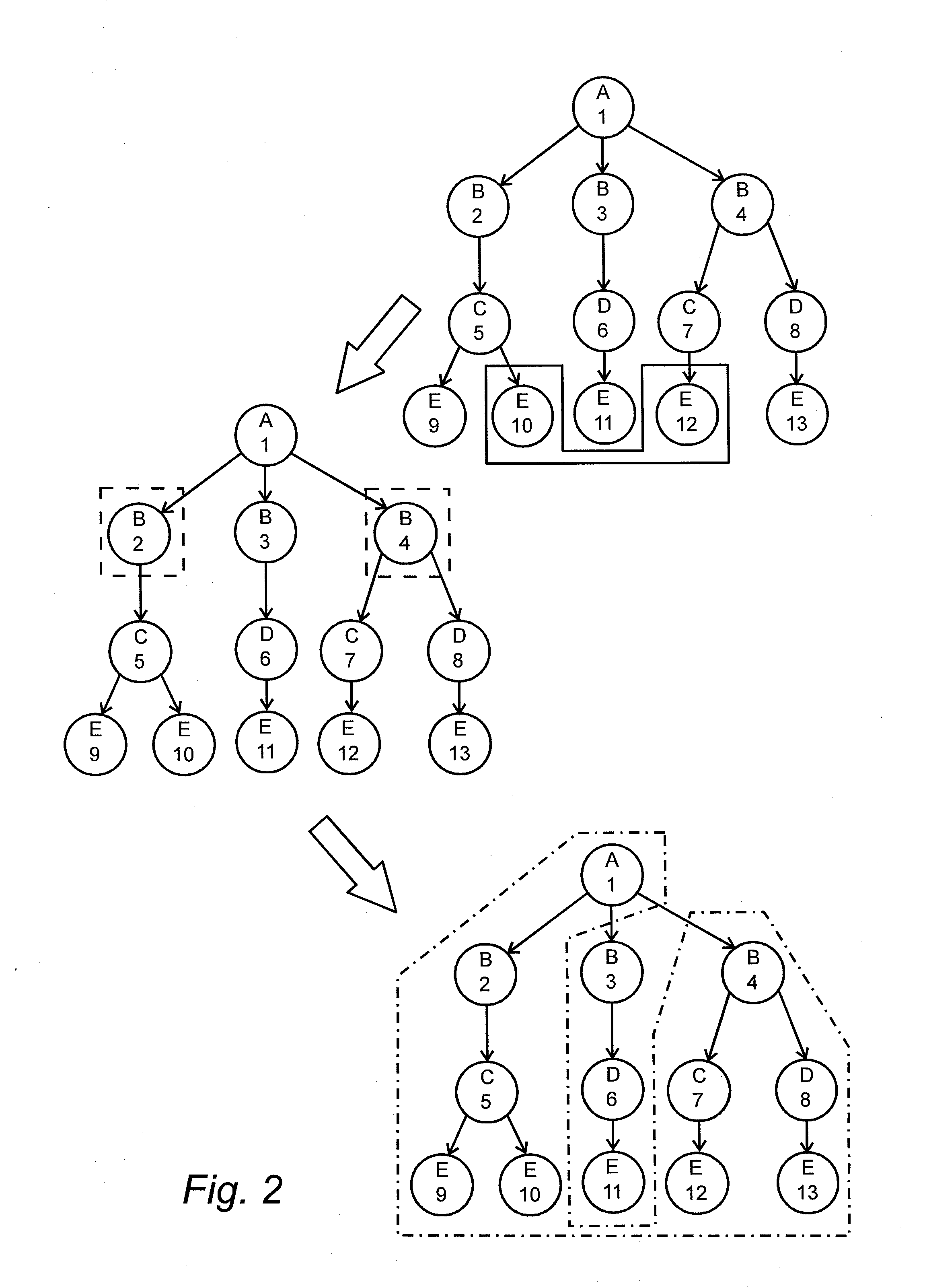Reflective logic unlocks knowledge in datasets
a dataset and reflection logic technology, applied in special data processing applications, instruments, electric digital data processing, etc., can solve the problems of difficult to use the category of solutions for an average user, the structure of the data is very sensitive to changes, and the search and analysis possibilities are limited by the design of the information system, so as to make the knowledge of the dataset more accessibl
- Summary
- Abstract
- Description
- Claims
- Application Information
AI Technical Summary
Benefits of technology
Problems solved by technology
Method used
Image
Examples
Embodiment Construction
[0044]The most fundamental unit in the data model is an object. Each object belongs to a type of objects that represents the concept of the information contained by the object. The types of objects are created according to how that information is defined by literature and understood by experts in that field. In order to reflect how information often behaves different objects of the same type are not required to contain the same kind information. Each object also knows which other objects that it relates to and what that relation means, i.e. the information represented by the presence of the relation.
[0045]FIG. 1 gives a graphical example of how a dataset can be represented using this data model. Circles represent different objects and arrows represent directed relations between different objects. A letter in a circle indicates the type of the object and a number in the circle is a unique identifier of each object. FIG. 1 shows one object belonging to object type A with a unique iden...
PUM
 Login to View More
Login to View More Abstract
Description
Claims
Application Information
 Login to View More
Login to View More - R&D
- Intellectual Property
- Life Sciences
- Materials
- Tech Scout
- Unparalleled Data Quality
- Higher Quality Content
- 60% Fewer Hallucinations
Browse by: Latest US Patents, China's latest patents, Technical Efficacy Thesaurus, Application Domain, Technology Topic, Popular Technical Reports.
© 2025 PatSnap. All rights reserved.Legal|Privacy policy|Modern Slavery Act Transparency Statement|Sitemap|About US| Contact US: help@patsnap.com



